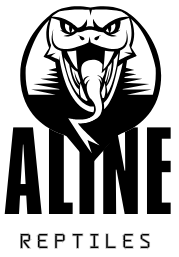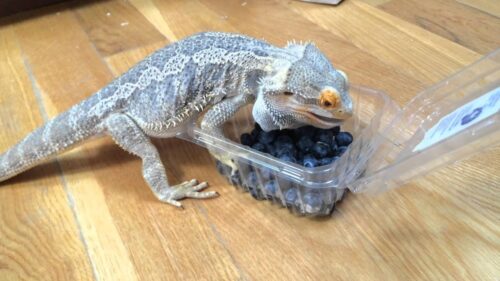As a bearded dragon owner, you want to give your pet the best life possible, right? You carefully plan their diet, ensuring they get the right balance of vitamins and nutrients to stay healthy and active. But one question that many owners face is, “Can bearded dragons eat blueberries?“
It’s a simple question, but the answer isn’t always as straightforward as it might seem. While blueberries are widely loved by humans for their sweet, tangy taste and nutritional benefits, can they actually be a good addition to your bearded dragon’s diet? Are they safe? Are they beneficial, or could they cause harm?
If you’re wondering whether this delicious berry can be part of your bearded dragon’s food menu, you’re in the right place. In this comprehensive guide, we’ll explore the safety, benefits, and risks of feeding blueberries to bearded dragons. Along the way, we’ll provide practical tips for feeding them safely, address common concerns, and offer some healthy alternatives.
Are Blueberries Safe for Bearded Dragons?

First things first: Are blueberries safe for your bearded dragon? The simple answer is yes, blueberries are not toxic to bearded dragons. You might have heard that certain fruits can be harmful to reptiles, but blueberries are on the safe list. That said, like all treats, they should be given in moderation.
Let’s break this down:
- Non-Toxicity: Blueberries, like most berries, do not contain harmful chemicals or compounds that would poison or harm your bearded dragon.
- Moderation is Key: While blueberries are safe, they contain natural sugars that can be harmful if overfed. Bearded dragons thrive on a primarily vegetable-based diet, so fruits like blueberries should only be offered as a treat and not a daily food item.
In general, blueberries are considered an occasional treat for your pet—just as you might give them a piece of fruit once in a while.
Key Fact to Remember:
Although blueberries are non-toxic, they must be fed in moderation. Too many blueberries can cause digestive issues due to their sugar content.
Nutritional Benefits of Blueberries for Bearded Dragons
Now, you might be asking, “If blueberries are safe, are they beneficial for my bearded dragon?” And the answer is yes! Blueberries offer several important nutrients that can benefit your pet when offered in the right amounts.
Vitamins and Minerals in Blueberries:
- Vitamin C: This vitamin plays a critical role in boosting the immune system and promoting overall health. While bearded dragons produce their own Vitamin C, the additional boost from fruits like blueberries can support their immune system, especially if they’re under stress or experiencing health issues.
- Fiber: Blueberries are a good source of fiber, which helps regulate digestion. Fiber is especially beneficial for bearded dragons as it helps them maintain healthy bowel movements.
- Antioxidants: Blueberries are rich in antioxidants, which fight off free radicals that can lead to cell damage and aging. Antioxidants contribute to long-term health and can potentially support your bearded dragon’s cellular health.
- Water Content: Like many fruits, blueberries have high water content, which can help keep your bearded dragon hydrated. However, remember that they should not replace fresh water or leafy greens, which are the primary sources of hydration for your pet.
How These Nutrients Benefit Bearded Dragons:
- Immune Support: Vitamin C and antioxidants help keep your bearded dragon’s immune system strong, helping them fight off illnesses and infections.
- Improved Digestion: The fiber content in blueberries can aid in digestion and prevent constipation or other digestive problems.
- Hydration: The water content in blueberries can help keep your pet hydrated, particularly when you’re offering a variety of fruits and vegetables in their diet.
While the nutritional benefits of blueberries are clear, these should only be a small part of your bearded dragon’s overall diet, which should consist primarily of greens, vegetables, and insects.
How to Feed Blueberries to Your Bearded Dragon
So, we know that blueberries are safe in moderation and offer some health benefits, but how do you actually go about feeding them to your bearded dragon? Let’s go over the best practices for preparing and serving blueberries to your pet.
Preparation Tips:
- Wash Thoroughly: It’s important to wash blueberries thoroughly before feeding them to your bearded dragon. This helps remove any pesticides or chemicals that might still be present on the fruit. Organic blueberries are a good option if you want to avoid pesticides altogether.
- Serve Fresh: Always serve fresh blueberries. Frozen blueberries can be difficult for your pet to eat and may cause digestive issues.
- Cut or Mash: Depending on the size of the blueberries and your bearded dragon’s preferences, you may want to cut them into smaller pieces or mash them slightly to make them easier to eat.
Portion Size:
Bearded dragons have small stomachs, so it’s important not to overfeed them. The general recommendation is to give your pet one to two blueberries at a time. This is especially important because blueberries contain natural sugars, and overfeeding can lead to issues like diarrhea or sugar imbalances.
For younger or smaller bearded dragons, consider halving the blueberries to prevent them from choking on larger pieces.
Frequency of Feeding:
Blueberries are a treat, not a staple food. You should only offer them once or twice a week. Overfeeding sugary fruits can lead to obesity and other health problems. The rest of your bearded dragon’s diet should consist primarily of leafy greens, vegetables, and occasional insects, with fruit offered only as a fun treat.
Potential Risks of Feeding Blueberries to Bearded Dragons

While blueberries are safe in moderation, there are some risks associated with feeding them to your bearded dragon. It’s important to be aware of these potential pitfalls so you can ensure your pet stays healthy.
Too Much Sugar:
One of the primary risks of feeding blueberries is the sugar content. While blueberries are lower in sugar than some other fruits, they still contain enough to cause problems if overfed. Bearded dragons are not able to process high amounts of sugar efficiently, which can lead to:
- Obesity: Too much sugar can lead to weight gain and obesity, which can negatively impact your pet’s health.
- Diarrhea: Excess sugar in the diet can cause digestive upset, resulting in diarrhea. This can lead to dehydration and other complications.
Imbalanced Diet:
Fruits like blueberries are great for adding variety to your bearded dragon’s diet, but they should not be the main component. A bearded dragon’s diet should be primarily focused on leafy greens and vegetables, with a limited amount of fruits and insects. Too much fruit can upset the nutritional balance and prevent your pet from getting the proper vitamins and minerals.
Digestive Issues:
Overfeeding blueberries can also lead to digestive issues. Bearded dragons have a delicate digestive system, and too many high-sugar fruits can cause stomach discomfort, bloating, and irregular bowel movements.
Alternative Fruits and Vegetables for Bearded Dragons
If you’re looking to expand your bearded dragon’s diet beyond blueberries, you’re in luck! There are plenty of safe fruits and vegetables that can be offered to your pet in place of—or in addition to—blueberries. These options provide additional vitamins, minerals, and fiber.
Fruits:
- Strawberries: Low in sugar and packed with Vitamin C.
- Mango: A sweet fruit that offers Vitamin A and fiber.
- Papaya: Rich in antioxidants and supports digestion.
- Pears: A good source of hydration and fiber.
Vegetables:
- Collard Greens: A must-have for your bearded dragon’s diet—high in calcium and vitamins.
- Butternut Squash: Packed with beta-carotene, which is great for overall health.
- Cucumber: Hydrating and a refreshing vegetable to add to their diet.
- Bell Peppers: A great source of Vitamin A and C.
Signs Your Bearded Dragon Is Not Tolerating Blueberries Well
In some cases, your bearded dragon might have an adverse reaction to blueberries. While rare, digestive upset or an allergic reaction can happen. Here are some signs to watch out for:
- Lethargy: If your bearded dragon becomes unusually tired or inactive after eating blueberries, it could indicate an issue.
- Diarrhea: Excessive sugar intake can cause diarrhea, which is one of the most common signs that your pet’s digestive system is reacting poorly.
- Loss of Appetite: If your bearded dragon refuses food after eating blueberries, it may be experiencing some discomfort or digestive upset.
If any of these symptoms occur, remove blueberries from their diet and consult a veterinarian for advice.
Can Baby Bearded Dragons Eat Blueberries?
If you have a baby bearded dragon, you might be wondering whether blueberries are safe for them as well. Baby bearded dragons have different dietary needs than adults. While they can technically eat blueberries, you should be cautious.
- Portion Size: Because baby bearded dragons are smaller, they need smaller portions. Consider offering a tiny piece of blueberry or even mashing it up to make it easier for them to consume.
- Frequency: Baby bearded dragons require a higher protein intake than adults, so fruit should be offered even less frequently—once every couple of weeks.
FAQs
- Can Bearded Dragons Eat Frozen Blueberries? It’s better to feed fresh blueberries, as frozen berries can be difficult for your pet to eat and may cause digestive issues.
- Can Bearded Dragons Eat Blueberries Every Day? No, blueberries should only be given once or twice a week due to their sugar content.
- What Are the Best Fruits for Bearded Dragons? Fruits like strawberries, mango, papaya, and pears are excellent options for a bearded dragon’s diet.
Conclusion
Can Bearded Dragons Eat Blueberries? Blueberries are a safe and beneficial treat for bearded dragons when offered in moderation. They provide essential nutrients, such as Vitamin C and fiber, that can support your pet’s overall health. However, because they contain sugar, they should not be a regular part of your bearded dragon’s diet. Instead, use blueberries as an occasional treat while focusing on a well-rounded diet of vegetables, leafy greens, and insects.
If you’re ever uncertain about your pet’s diet or if they show signs of discomfort after eating a particular food, it’s always best to consult with a veterinarian who specializes in reptiles.
Feeding your bearded dragon is an important part of their care, and by following these guidelines, you can ensure that your pet stays healthy, happy, and thriving for years to come. Happy feeding!

